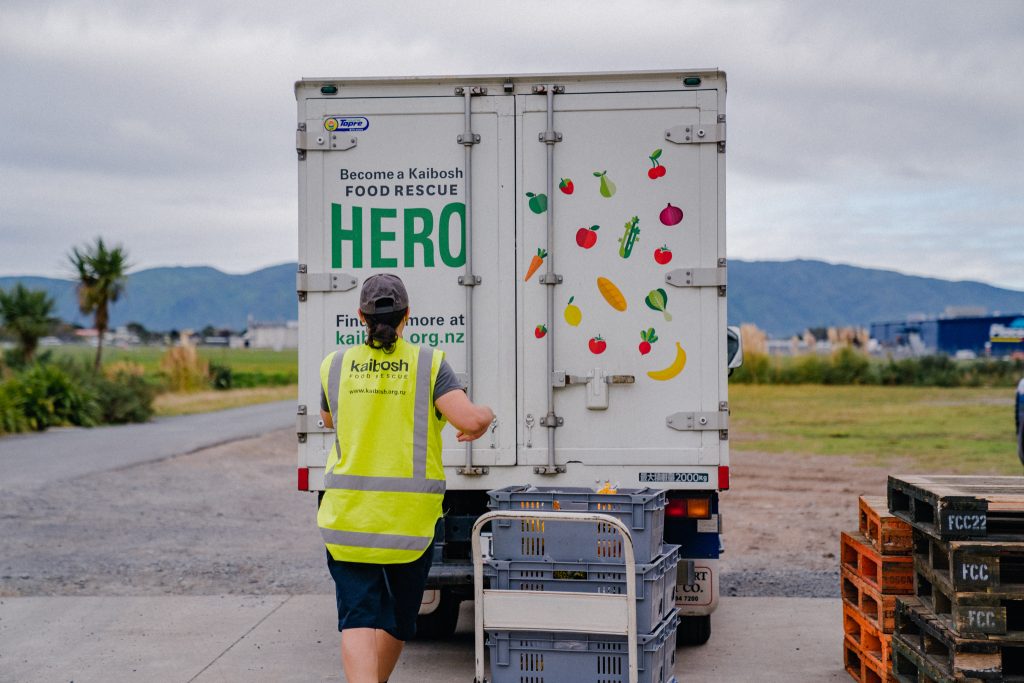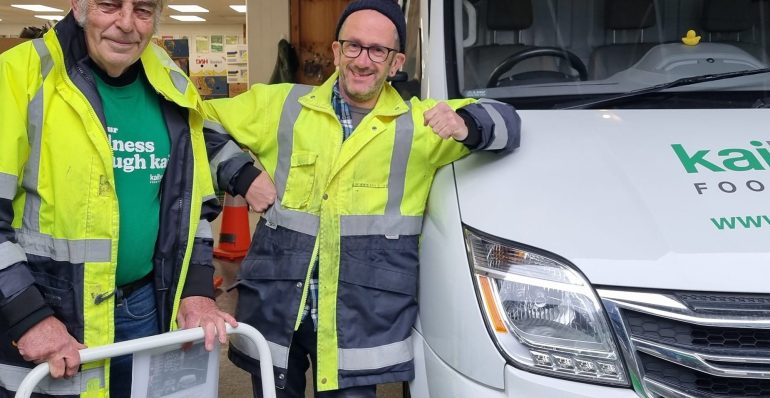Living Wage on Labour Day
Labour Day is a timely reminder of the rights of workers in Aotearoa to earn a decent wage doing meaningful work that enables them to enjoy a good quality of life. It’s about valuing the person’s overall wellbeing, not just ensuring their ability to work.
When we invest in a person’s wellbeing by paying them an adequate income, we’re also equipping them with the tools to thrive at home and outside of work.
Kaibosh proudly chooses to pay a Living Wage to our Food Rescue Truck Drivers
At Kaibosh, we are deeply committed to our mission of reducing food waste and combatting food insecurity. But our commitment doesn’t stop with the communities we serve; it extends to those who work tirelessly to make our vision a reality. This is why we have made the conscious decision to pay our drivers the Living Wage, despite not being a certified Living Wage Provider.
What is the Living Wage?
The Living Wage in New Zealand is an independently calculated* hourly rate that reflects the actual cost of living. It’s designed to ensure that workers can afford the basic necessities of life, participate as active citizens in their communities, and lead a dignified life. As of September 2024, the Living Wage is set at $27.80 per hour, a figure that significantly exceeds the statutory minimum wage which is $23.15 per hour, and the starting out and training minimum wage of $18.52 per hour.
Why we pay the Living Wage
- Supporting our team’s wellbeing: Our drivers are the backbone of Kaibosh, ensuring that surplus food is collected and distributed efficiently to those in need. By paying them the Living Wage, we are sending a message that their work is valued by us and the community that supports us.
- Aligning with our values: We believe that social responsibility starts in your own backyard. Just as we advocate for food security in the communities we serve, we also advocate for fair treatment and respect for our team. Paying the Living Wage is an extension of our core values—fairness, respect, and community.
- Inspiring others in the sector: While we are not officially accredited as a Living Wage Employer, we hope that our actions will inspire others within the food rescue and broader charitable sector to follow suit. We also choose to partner with other Living Wage Accredited businesses and organisations in Wellington, including; Buddle Finlay, Te Rūnanga O Toa Rangatira, Thankyou Payroll, Garage Project, and Sustainability Trust. Our local councils have also set a strong example by becoming Accredited Living Wage Employers, and we are proud to stand alongside them in supporting fair wages.
- Improving retention and job satisfaction: Offering a Living Wage isn’t just the right thing to do—it’s also practical. When employees feel valued and are paid fairly, they are more likely to stay with the organisation, which reduces turnover and the associated costs of recruitment and training. Moreover, our team’s satisfaction directly impacts the quality of service we provide to our food donors and the community.

The road ahead
Kaibosh is committed to ongoing advocacy for fair wages and improved working conditions in the non-profit sector. We recognise that paying the Living Wage is just one step in creating a more equitable society, and we continue to explore ways to enhance the wellbeing of our staff.
By choosing to pay the Living Wage, we are investing in the people who make our mission possible every day. It’s not just an investment in our drivers; it’s an investment in the future of our community.
For more information:
Living Wage Movement Aotearoa New Zealand
* The living wage is calculated by the New Zealand Family Centre Social Policy Unit.





